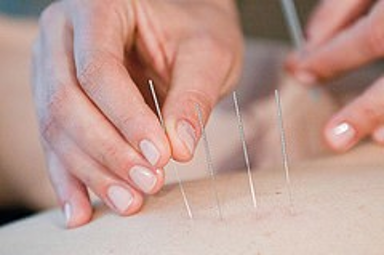Just imagine if you could alleviate your chronic back pain without medication. This common, and often debilitating, condition can interfere with everyday tasks and chores. For Medicare beneficiaries, it can be even more challenging. The good news is that on January 21, 2020, the CMS (Centers for Medicare and Medicaid Services) announced that it will now approve acupuncture to treat low back pain in some situations (https://www.cms.gov/newsroom/press-releases/cms-finalizes-decision-cover-acupuncture-chronic-low-back-pain-medicare-beneficiaries). Prior to this determination, acupuncture was not a covered benefit by Medicare. Medicare coverage will now include up to 12 sessions within a 90-day period.
As part of the government’s fight on opioid addiction, pain treatment has been expanded to other modalities of therapy, one of which is acupuncture. Statistics show that opioids have become a public health crisis. There were 47,600 overdose deaths in 2017 due to opioids, and CMS wants to support these alternative treatments that can replace these addictive drugs. Studies on adults 65 years of age or older show that patients with chronic low back pain in these studies demonstrated improvements in overall function and pain level. In addition, all the evidence reviewed for this decision supports various strategies for chronic low back pain including non-prescription drug therapies.
According to the CMS, while there is variation in covered indications and frequency of services, many private health plans provide at least some acupuncture coverage for their subscribers today. Furthermore, as a result of the CMS decision in covering acupuncture, more health plan administrators may consider adding or expanding their coverage to include acupuncture.
You’ve probably heard of the field of “naturopathy”, of which acupuncture is one facet – it is a form of alternative medicine. It is most commonly practiced by naturopathic doctors. Although acupuncture might be synonymous with naturopathy, it is a practice based in ancient oriental roots. It originated in China thousands of years ago. It is a form of therapy using needles which stimulate channels of energy or meridians of the body to improve energy flow (chi). This “chi” restores a sense of balance and health to the body. Over time, Western medicine has evolved to be more accepting of this ancient practice and is used by health practitioners in addition to traditional forms of treatment.
According to proponents, the benefits of acupuncture are many, including the following:
- Stress reduction
- Reduction in neck tension and joint pain in the hands and arms;
- Relief from headaches;
- Insomnia
- Sciatica
- Reduced eye strain
- Improved immune system
- Increased energy
- Relief from digestive ailments
- Allergy relief
- Reduced desire for nicotine
- Weight loss
The World Health Organization (WHO) also says that acupuncture may help the following conditions, although more evidence is needed to confirm efficacy:
- fibromyalgia
- neuralgia
- post-operative convalescence
- substance, tobacco and alcohol dependence
- vascular dementia
- whooping cough, or pertussis
- Tourette syndrome
The WHO also suggests that it may advantageous to treat a number of infections, including urinary tract infections and epidemic hemorrhagic fever.
The overall benefits of having acupuncture can be life-changing for some people, if it is performed correctly. Unlike many prescribed medications, there are very few side effects when performed correctly. It can be effectively integrated with other modalities of treatment. However, the number of treatments needed depend on the patient, and whether the condition(s) for which he/she is being treated is/are chronic or acute. A chronic problem may take longer to be eradicated than an acute one.
It is advised that acupuncture is not used as the sole means of treatment. It is advisable to use it in coordination with conventional treatments in cases of chronic or severe illness.
All therapies have risks as well as benefits. Some possible risks of acupuncture are:
- Excessive bleeding if a patient has a bleeding disorder or takes blood thinners
- Bleeding, bruising, and soreness may occur at the insertion sites
- Infection resulting from unsterilized needles
- In rare cases, a needle may break and damage an internal organ
- In rare cases, risk of collapsed lung when needle inserted deeply into chest or upper back
The United States (U.S.) Food and Drug Administration (FDA) regulate acupuncture needles as medical devices. Their manufacture and labeling must meet specific standards. The needles must be sterile, nontoxic, and labeled for one use only, by a licensed health care practitioner.
_____________________
65Medicare.org is a leading, independent Medicare insurance  agency for people turning 65 and going on Medicare. If you have any questions about this information, you can contact us online or call us at 877.506.3378.
agency for people turning 65 and going on Medicare. If you have any questions about this information, you can contact us online or call us at 877.506.3378.

Leave a Reply
You must be logged in to post a comment.